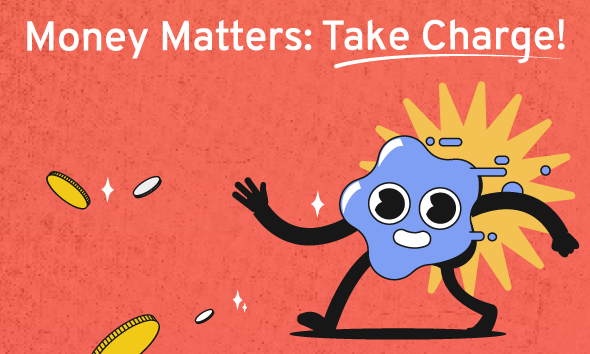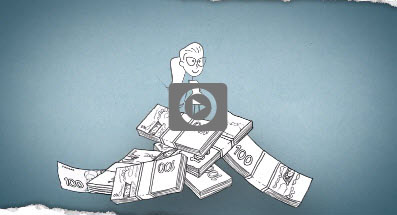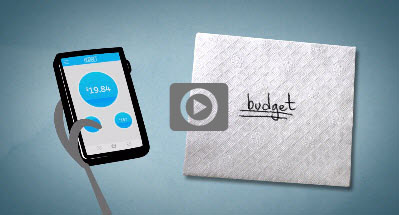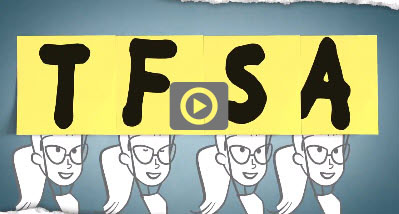Teacher Zone

Quick menu
Secondary School Education Program
Complementary teaching activities to the Program
Youth Zone
Short articles in support of personal finance learning
Videos
Videos to support you in teaching the Secondary School Financial Education Program
Educational activities for all levels
Resources for primary, secondary and college teachers
Contests
Participate in various contests of the AMF or its partners
Calculators
Calculators to demonstrate financial concepts
In the spotlight
Secondary school Financial Education Program
The AMF and its partners offer a full set of teaching activities to build on the program competency Takes a position on a financial issue of the secondary school Financial Education Program This link will open in a new window.
The activities offer a variety of teaching-learning situations adapted to the reality of young people and aimed at developing this skill and its components: Identifying the situation, Examining the options, Considering the legal aspects and Relativizing its position.
In addition, three videos provide an in-class introduction to financial concepts.
Find out how these activities This link will open in a new window (French only) fit in the secondary school Financial Education Program.
Our partners
- L’Office de la protection du consommateur
This link will open in a new window
- Commission des normes, de l’équité, de la santé et de la sécurité du travail
This link will open in a new window
- Revenu Québec
This link will open in a new window
- Récit national Univers social
This link will open in a new window
Learning activities
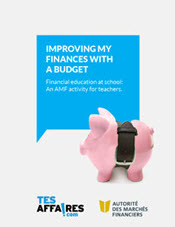
Improving my finances with a budget
Students review two budgets, identify problems and suggest improvements.
Teacher's Guide (pdf - 3 MB)This link will open in a new windowUpdated on November 2, 2016
Student sheet (pdf - 2 MB)This link will open in a new windowUpdated on May 31, 2016
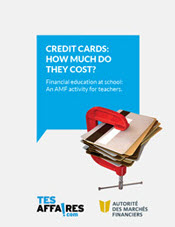
Credit Cards: How much do they cost?
Students calculate how much interest they will pay depending on how they use their credit card.
Teacher's Guide (pdf - 1 MB)This link will open in a new windowUpdated on January 19, 2018
Student sheet (pdf - 426 KB)This link will open in a new windowUpdated on January 19, 2018
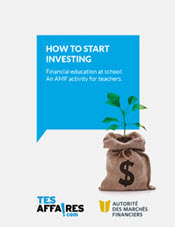
How to Start Investing
Students learn about the advantages of starting to invest early and the different features of investments. As an option, students learn to distinguish between the main types of investments.
Teacher's Guide (pdf - 3 MB)This link will open in a new windowUpdated on November 23, 2016
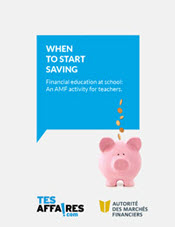
When to start saving
Students learn good saving habits. Using a calculator, students determine how much money they would have to set aside each year for 34 years to become a millionaire.
Teacher's Guide (pdf - 2 MB)This link will open in a new windowUpdated on May 27, 2016
Student sheet (pdf - 1 MB)This link will open in a new windowUpdated on May 31, 2016
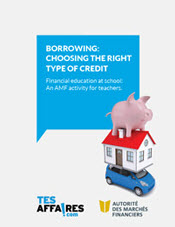
Borrowing: Choosing the right type of credit
Students choose what type of credit is the most appropriate for a given situation.
Teacher's Guide (pdf - 2 MB)This link will open in a new windowUpdated on May 26, 2016
Student sheet (pdf - 1 MB)This link will open in a new windowUpdated on May 31, 2016
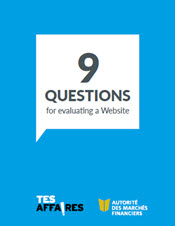
9 questions for evaluating a Website
When it comes to personal finances, be careful with the information you find online. Here are 9 questions to help you evaluate whether website information is relevant and reliable.
Videos
Calculators
To demonstrate financial concepts
Why make a budget? What's compound interest? How much interest do credit card companies charge?
The calculators will help you illustrate several financial concepts:
Educational activities for all levels
In addition to pedagogical tools, the AMF provides links that you may find useful when preparing your classes or classroom activities. If there’s a link you would like to see added, let us know!
Chartered Professional Accountants Canada This link will open in a new window
Canadian School Workshops Program.
Club des jeunes consommateurs allumés - Estrie This link will open in a new window
Workshops introducing young people to financial basics and consumption-related topics.
Club des consommateurs allumés - Laval This link will open in a new window
Workshops introducing young people to financial basics and consumption-related topics.
Dollar $ense! This link will open in a new window (GRICS)
Learning activities to help students build the foundations for financial literacy.
Finance P.G.L. This link will open in a new window (Fondation P.G.L.) (French only)
On-line activities on three themes: employment, water, and education for a better world.
Teacher Zone This link will open in a new window (Office de la protection du consommateur)
Teaching activities for classroom discussions about credit, advertising, consumer rights and remedies, responsible consumer behavior and financial education.
Bourstad This link will open in a new window (Cirano)
Opportunity to learn about the stock market through an on-line simulation.
Chartered Professional Accountants Canada This link will open in a new window
Canadian School Workshops Program.
Club des jeunes consommateurs allumés - Estrie This link will open in a new window
Workshops introducing young people to financial basics and consumption-related topics.
Club des consommateurs allumés - Laval This link will open in a new window
Workshops introducing young people to financial basics and consumption-related topics.
Finance P.G.L. This link will open in a new window (Fondation P.G.L.) (French only)
On-line activities on three themes: employment, water, and education for a better world.
Financial education – LEARN Québec This link will open in a new window
Teacher strategies and tools that fit the new Quebec program’s various "Financial Issues" and "Concepts".
FinÉcolab This link will open in a new window (Cirano)
Interactive educational activities to help students understand a large number of economic concepts.
Money Fair This link will open in a new window (Canadian Foundation for Economic Education)
Teacher’s guide for organizing a money fair at school.
Money and Youth This link will open in a new window(Canadian Foundation for Economic Education)
Guide to help kids understand money and financial matters.
Qu’est-ce qui influence mon dossier de crédit? This link will open in a new window (Office de la protection du consommateur) (in French only)
Educational activity for secondary cycle two
Ready, Set, Invest! This link will open in a new window (Éducaloi)
Classroom workshop given by a legal professional.
Teacher Zone This link will open in a new window (Office de la protection du consommateur)
Teaching activities for classroom discussions about credit, advertising, consumer rights and remedies, responsible consumer behavior and financial education.
Your Money This link will open in a new window (Canadian Bankers Association)
Free 50-minute in-class seminar on key financial concepts given by a banker.
J’épargne ma planète This link will open in a new window (in French only)
Educational kit that includes five activities and approaches financial literacy from a socioeconomic perspective.
Bourstad This link will open in a new window (Cirano)
Opportunity to learn about the stock market through an on-line simulation.
FinÉcolab This link will open in a new window (Cirano)
Interactive educational activities to help students understand a large number of economic concepts.
J’épargne ma planète This link will open in a new window (in French only)
Educational kit that includes five activities and approaches financial literacy from a socioeconomic perspective.
Youth Zone
The Tes affaires! Youth Zone contains personal finance-related articles covering a broad range of topics relevant to young people.
Feel free to share them with your students or use them in class!
Can I afford an apartment?
Thinking of moving out on your own? It’s important to first figure out how much it’ll actually cost, as rent isn’t the only thing you’ll have to pay.
Questions or comments?
To send us your questions or comments: [email protected]
To reach us by phone: 418 525-0337 (Québec City), 514 395-0337 (Montreal), 1 877 525-0337 (Toll-free)
End of the Information

